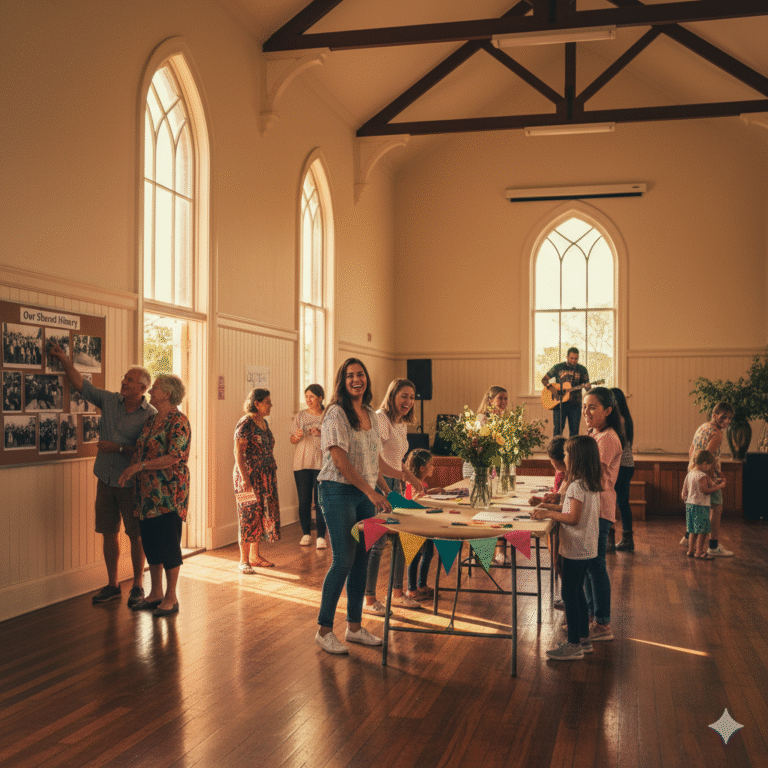
Like many other industries worldwide, Melbourne’s home care sector is drastically transforming to meet the growing demand for senior care. Whenever the population count increases and extends its age bracket, the demand for support services offered at home based on physical and emotional management also increases steeply. This has created a situation where everyone is moving towards a personal, flexible, holistic care system.
The goal is to empower individuals to age gracefully in their homes for as long as possible, receiving necessary care with minimal assistance. Discover how DMA Caring Hand can support you in this journey by visiting https://www.dmacaringhand.com.au/.
1. Personalised and Tailored Care
Another emerging concept is the personalisation of care in Melbourne, where the services withdrawn measure does not meet formal care programs that are good for everyone, but the prospects of a care plan that is custom-designed to serve a specific senior’s needs and personal concerns.
This customisation enhances care quality and satisfaction for seniors and their families by ensuring services meet individual requirements.
2. Technological Advancements in Care Delivery
Technology is revolutionising home care through wearable health gadgets since one can monitor the patient’s vital signs in real-time. Telehealth services allow seniors to consult healthcare professionals via video calls, enhancing convenience.
Remote monitoring tools track medication adherence and mobility, while smart home technologies like voice assistants and fall detection systems improve safety and independence for seniors.
3. Aging-in-Place Movement
This is gaining momentum among seniors in Melbourne, emphasising their desire to remain in their homes rather than move to assisted living.
Home care services adapt by offering in-home support, from medical care to daily assistance, while implementing safety modifications like grab bars and ramps.
This shift reflects seniors’ wishes for autonomy and comfort in familiar environments.
4. Mental Health and Emotional Well-being
Growing cognisance of cognitive health in senior care addresses loneliness and isolation that may result in depression. Melbourne home care services include mental health social support, companionship visits, counselling, and help to arrange various recreational activities essential to improving seniors’ physical and psychological health.
5. Training and Professional Development of Caregivers
The shortage of qualified caregivers in Melbourne’s home care industry prompts enhanced training programs to equip staff with essential skills like medical care and dementia support.
Additionally, providers offer flexible working conditions and career advancement opportunities to attract and retain talent, ensuring consistent, high-quality care for seniors.
6. Rise of Specialised Care Services
As Melbourne’s senior population diversifies, the demand for specialised care services is increasing, particularly for conditions like dementia and Parkinson’s disease. To counter this challenge, home care providers provide services in different languages and ensure caregivers are conscious of their culture.
Aging patients receive exceptional care in dementia with distinctive care programs, such as memory-checking games and rigid schedules, to implement unique patient-centred plans that conform to medical and culturally acceptable practices.
7. Holistic Health and Wellness
One of the tendencies of in-home care is the shift in holistic care — addressing the purchaser’s physical, mental, and emotional well-being.
Providers actively promote appropriate exercises such as yoga for older people and even provide nutrition consultation.
Wellness programs aimed at stress reduction and mindfulness enhance the quality of life by addressing comprehensive health needs rather than just managing illness symptoms.
8. Government Support and Subsidised Care
The Australian government actively supports home care services in Melbourne through subsidised programs like the Commonwealth Home Support Programme (CHSP) and Home Care Packages (HCP).
These initiatives help seniors access essential care tailored to their needs. Efforts are underway to simplify the regularly-complicated application, making it easier for households to navigate.
Additionally, a few service vendors assist customers in dealing with government funding successfully, ensuring they maximise their blessings while receiving the care they require at home.
9. Flexible and Scalable Services
Flexibility is increasingly vital in-home care services, with Melbourne providers now offering customisable and scalable options. Seniors and their families can select the level of care that best fits their needs, whether a few hours of weekly assistance or 24/7 medical support.
This flexibility is vital for families as health conditions evolve; for instance, a senior recovering from surgery may initially require intensive care but later need only minimal support as they regain their independence.
10. Cost-Effective Alternatives to Residential Care
Rising charges of Residential Aged Care are prompting many families to not forget Home Care Services in Melbourne as a cheap alternative to assisted residing. These offerings allow older adults to receive the personal interest and personalised care they deserve at a considerably lower value than nursing homes.
By opting for home care, seniors can maintain their independence and live in the consolation of their houses. This shift has increased demand for accessible, finance-friendly home care answers for aging loved ones.
11. Collaboration Between Healthcare Providers
Collaboration between home care providers and healthcare professionals is an emerging trend, ensuring a seamless continuum of care for seniors. Otherwise, through close cooperation with hospitals and rehabilitation centres, this integrated model covers all the aspects of a client’s health condition, including recovery processes after discharge from a hospital and further constant support, thus preventing rehospitalisation and related stress and expenses.
12. End-of-Life and Palliative Care
The growing demand for end-of-life and comforting care at home underscores seniors’ and households’ alternatives for care in familiar environments. Home care providers are developing specialised relaxing treatments so older people can stay comfortable during their last days and keep the respect in front of their families.
Wrapping It Up
The home care sector in Melbourne is rapidly growing due to changing client needs, advancements in care technology, and increased awareness of mental health. By visiting DMA Caring Hand, you can commit to embracing this transformation for a more comfortable life.
More seniors are choosing to age in their own homes, prompting the rise of specialised services that offer crucial clinical, emotional, and social support, allowing them to live safely and gracefully.
This positive trend signifies a bright future for home care, emphasising its essential role in improving the quality of life for older Australians while fostering dignity and independence.


